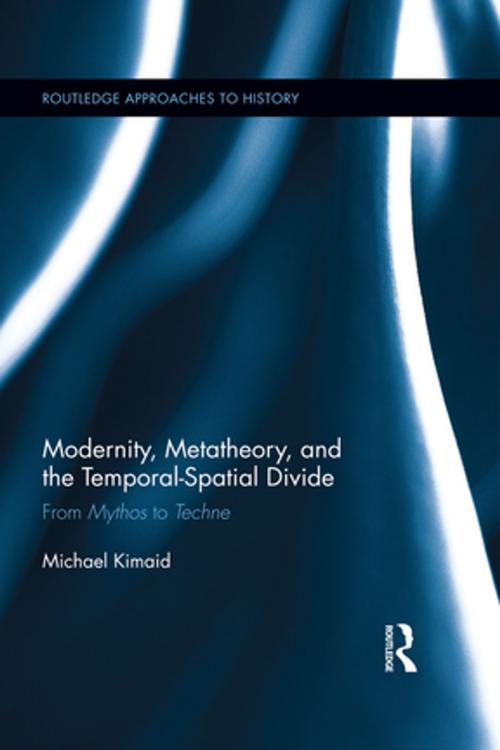Modernity, Metatheory, and the Temporal-Spatial Divide
From Mythos to Techne
Nonfiction, History, Civilization, World History| Author: | Michael Kimaid | ISBN: | 9781317565420 |
| Publisher: | Taylor and Francis | Publication: | March 27, 2015 |
| Imprint: | Routledge | Language: | English |
| Author: | Michael Kimaid |
| ISBN: | 9781317565420 |
| Publisher: | Taylor and Francis |
| Publication: | March 27, 2015 |
| Imprint: | Routledge |
| Language: | English |
This book is about how modernity affects our perceptions of time and space. Its main argument is that geographical space is used to control temporal progress by channeling it to benefit particular political, economic and social interests, or by halting it altogether. By incorporating the ancient Greek myth of the Titanomachy as a conceptual metaphor to explore the elemental ideas of time and space, the author argues that hegemonic interests have developed spatial hierarchy into a comprehensive system of technocratic monoculture, which interrupts temporal development in order to maintain exclusive power and authority. This spatial stasis is reinforced through the control of historical narratives and geographical settings. While increasingly comprehensive, the author argues that this state of affairs can best be challenged by focusing on the development of "unmappable places" which presently exist within the socio-spatial matrix of the modern world.
This book is about how modernity affects our perceptions of time and space. Its main argument is that geographical space is used to control temporal progress by channeling it to benefit particular political, economic and social interests, or by halting it altogether. By incorporating the ancient Greek myth of the Titanomachy as a conceptual metaphor to explore the elemental ideas of time and space, the author argues that hegemonic interests have developed spatial hierarchy into a comprehensive system of technocratic monoculture, which interrupts temporal development in order to maintain exclusive power and authority. This spatial stasis is reinforced through the control of historical narratives and geographical settings. While increasingly comprehensive, the author argues that this state of affairs can best be challenged by focusing on the development of "unmappable places" which presently exist within the socio-spatial matrix of the modern world.















